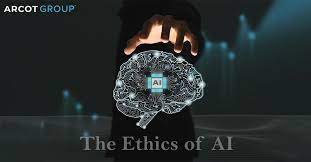Introduction
In the rapidly advancing era of artificial intelligence, ethical considerations have become paramount. The Ethics of AI encompasses a range of issues, including bias in algorithms, privacy concerns, and the broader implications of AI on society. As we navigate this technological landscape, it is crucial to address these ethical challenges to ensure the responsible and fair development of AI systems.
The Role of Bias in AI
Algorithmic bias, the unintentional discrimination embedded in AI systems, poses a significant ethical concern. Biased AI can perpetuate and amplify existing societal inequalities, leading to adverse consequences in decision-making processes.
Addressing Bias in AI
To mitigate bias in AI, implementing fairness and transparency in algorithms is essential. This involves scrutinizing and adjusting algorithms to ensure they treat all individuals fairly. Diverse and inclusive data collection is equally crucial to prevent the perpetuation of biased patterns.
Privacy Concerns in AI
AI systems often rely on vast amounts of personal data, raising privacy concerns among individuals. Striking the right balance between fostering innovation and protecting personal privacy is a delicate challenge faced by developers and policymakers alike.
Ensuring Privacy in AI Systems
To ensure privacy in AI systems, robust data anonymization techniques must be employed. Additionally, the implementation of stricter regulations and compliance standards is necessary to hold organizations accountable for the responsible handling of personal information.
Ethical AI in Decision-Making Processes
Transparency in AI decision-making is a fundamental ethical principle. Users should be able to understand how AI systems arrive at their decisions. Furthermore, accountability and responsibility in AI development are crucial to prevent the misuse or unintended consequences of AI technologies.
Bias and Fairness in AI Applications
The impact of biased AI is felt across various sectors, from criminal justice to healthcare. Ensuring fairness in AI applications requires ongoing scrutiny and adjustments to prevent and rectify biases that may emerge in real-world scenarios.
AI and Social Equity
Ethical AI plays a vital role in addressing socioeconomic disparities. By actively promoting accessibility and inclusivity in AI technologies, developers can contribute to a more equitable distribution of the benefits of artificial intelligence.
Challenges in Implementing Ethical AI
Balancing innovation with ethical considerations poses a significant challenge. Striking a harmonious balance requires careful navigation of the ethical landscape while fostering continued advancements in AI technology. The establishment of global standards for ethical AI development and deployment is a necessary step.
Public Awareness and Education
Increasing public awareness about AI ethics is essential. Educating developers, businesses, and the general public helps create a collective understanding of the ethical implications of AI, fostering responsible AI practices.
International Collaboration on AI Ethics
Given the global nature of AI, international collaboration on AI ethics is imperative. Establishing common standards, sharing best practices, and addressing ethical challenges collectively contribute to a more ethical and responsible AI ecosystem.
The Future of Ethical AI
The future of ethical AI involves continual technological advancements. Innovations in ethical AI will play a crucial role in shaping the responsible use of AI technologies, ensuring they align with ethical principles.
The Role of Governments and Regulatory Bodies
Governments and regulatory bodies play a crucial role in AI ethics. Formulating and enforcing AI ethics regulations is necessary to provide a framework for responsible AI development while balancing the need for innovation.
Public Trust in AI Systems
Building and maintaining public trust in AI systems is vital for widespread acceptance. Ethical considerations significantly influence public perception, and organizations must prioritize ethical practices to establish and sustain trust.
Conclusion
In conclusion, the Ethics of AI is an indispensable aspect of the ongoing AI revolution. Addressing bias, privacy concerns, and broader ethical considerations are vital to ensure the responsible development and deployment of AI systems. By prioritizing ethical principles, we can shape a future where AI technologies contribute positively to society while respecting the values and rights of individuals.
